Are you dealing with a real estate zoning dispute and unsure of how to approach it? Navigating local regulations can feel overwhelming, but crafting a well-structured letter is a crucial first step in advocating for your rights. In this article, we'll guide you through the essential elements of a persuasive zoning dispute letter, ensuring you articulate your concerns effectively. So, let's dive in and explore how you can navigate your zoning challenges with confidence!
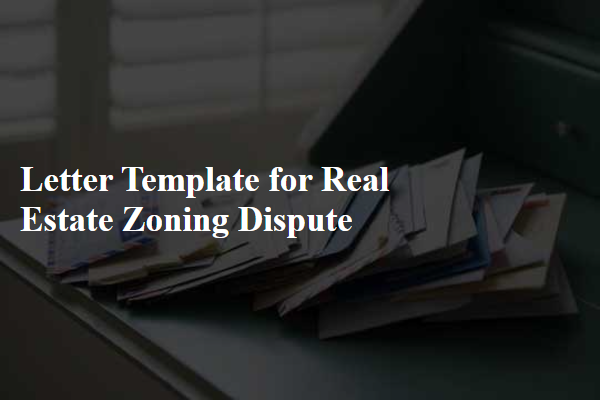
Clarity and Conciseness
A real estate zoning dispute often arises in areas such as residential neighborhoods, commercial districts, or mixed-use developments. Local zoning regulations, often governed by municipal ordinances, define permissible land uses. In many cases, property owners may contest decisions made by zoning boards, often related to variances or special exceptions. Such disputes may involve stakeholders, including local government officials, planning commissions, and affected community members. Key factors impacting these disputes can include property rights, compliance with zoning codes, and potential changes in land use that could affect neighborhood character. Challenging a zoning decision typically entails submitting appeals within designated timeframes, often accompanied by supporting documentation or expert testimonials. Local hearings or court proceedings often play a critical role in resolving these disputes and require clear presentations of facts and legal arguments to clarify positions and desired outcomes.
Legal Precedents and References
In real estate zoning disputes, legal precedents play a crucial role in shaping outcomes. For example, the landmark Supreme Court case of Euclid v. Ambler Realty Co. (1926) established the constitutionality of zoning laws in the United States by affirming municipal authority over land use regulation, which created a framework for communities to manage growth and land development. Additionally, cases such as Nectow v. City of Cambridge (1928) illustrated the importance of demonstrating the specific detrimental impact of zoning decisions on property values and local economies. Local statutes, such as the California Government Code SS 65800, empower cities to adopt zoning regulations and emphasize the need for justifications based on public health, safety, and welfare. Furthermore, variances under statutes like the New York City Zoning Resolution may provide property owners avenues to seek exemptions from specific zoning regulations, illustrating the balance between regulatory authority and property rights. Effective arguments in disputes often draw upon such established legal frameworks to advocate for or against zoning changes, influencing local zoning boards and planning commissions significantly.
Local Zoning Laws and Regulations
Local zoning laws and regulations govern land use in urban and rural areas, shaping communities through codes enforced by municipalities like the City of Springfield or County of Fairview. These regulations dictate the type of structures that can be developed, such as residential houses, commercial buildings, or industrial sites, with specific classifications, including R1 for single-family homes or C2 for general commercial use. Disputes often arise when property owners, such as Mr. Johnson, seek variances or special permits to alter existing land use, prompting potential conflicts with neighborhood associations and local governments. Engagement can involve public hearings or appeals to Zoning Board of Appeals, where stakeholders present arguments or evidence that reflect community interests. Understanding these regulations is crucial, as violations can lead to fines or mandated compliance actions.
Impact on Community and Environment
Zoning disputes in real estate often lead to heated discussions regarding their impact on the community and environment. Significant changes in zoning regulations can alter the landscape of neighborhoods, affecting local property values and community cohesion. For example, proposals to convert residential zones into commercial zones can increase traffic congestion, reduce green spaces, and disrupt the social fabric of the area. In urban environments like New York City, where mixed-use developments are common, buildings often overshadow parks, displacing natural habitats and affecting wildlife. Furthermore, alterations in zoning may lead to increased pollution levels, both air and noise, which can harm public health. Residents often express concerns about school overcrowding, infrastructure strain, and changes to the character of their neighborhoods as developers aim to profit from high-density projects. Balancing growth and sustainability is essential for protecting community interests and preserving the environment for future generations.
Proposed Solutions and Compromises
In the ongoing real estate zoning dispute involving the residential area situated near Oakwood Avenue in Springfield, various proposed solutions and compromises have emerged. One suggestion includes adjusting the zoning classification from high-density residential to a mixed-use development, allowing for both commercial and residential spaces while maintaining a balance between community needs and business opportunities. Additionally, implementing a buffer zone with landscaping around the commercial properties could mitigate noise and traffic impacts for the neighboring homes. Incorporating community feedback sessions may foster collaboration between residents and developers, promoting transparency in decision-making processes. Lastly, establishing specific building height limitations could preserve the quaint character of the neighborhood, vital to its identity, while accommodating the economic growth desired by investors.

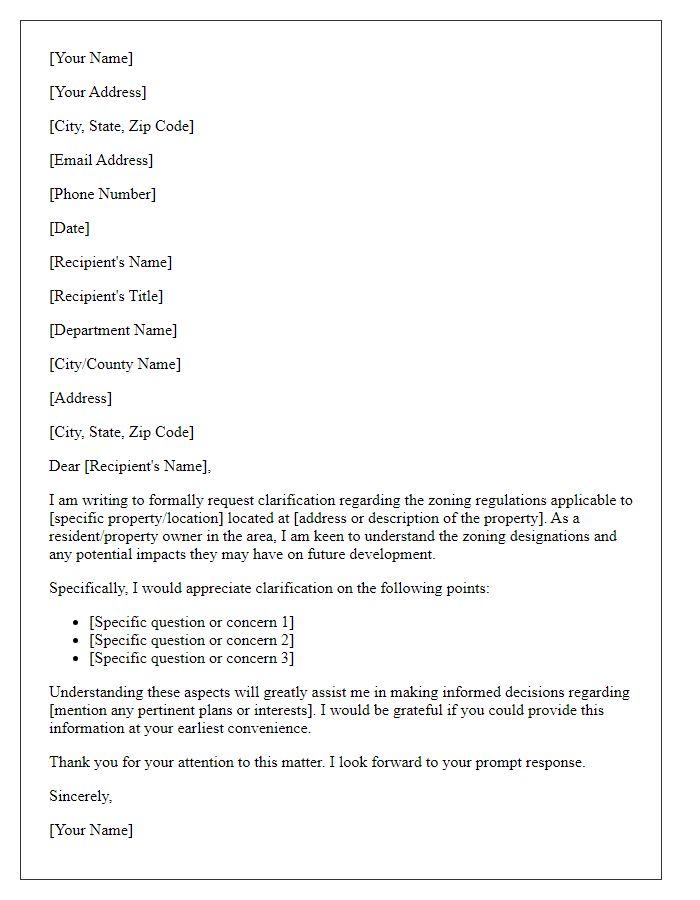
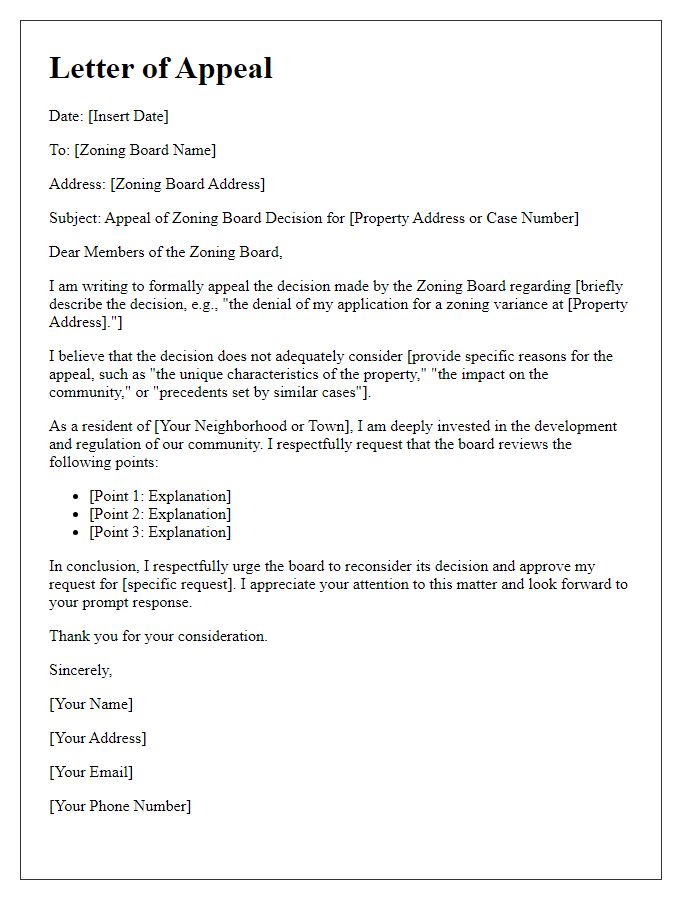
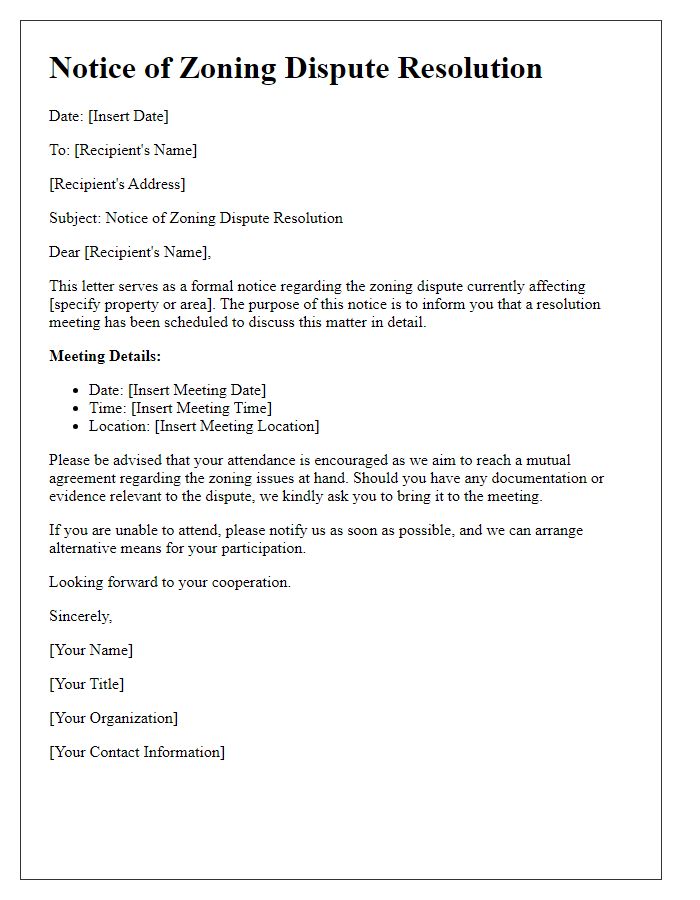
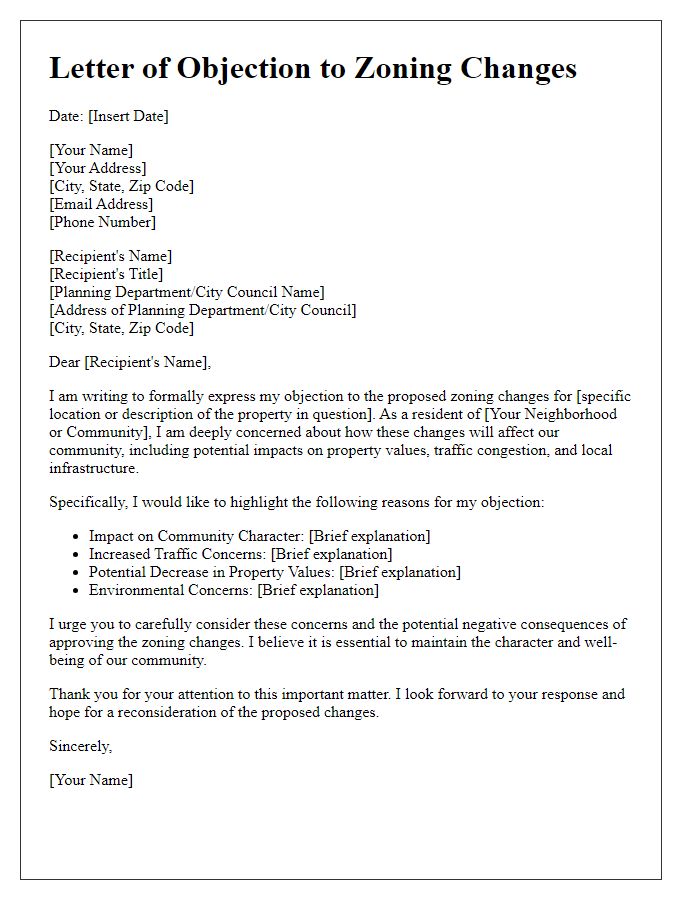
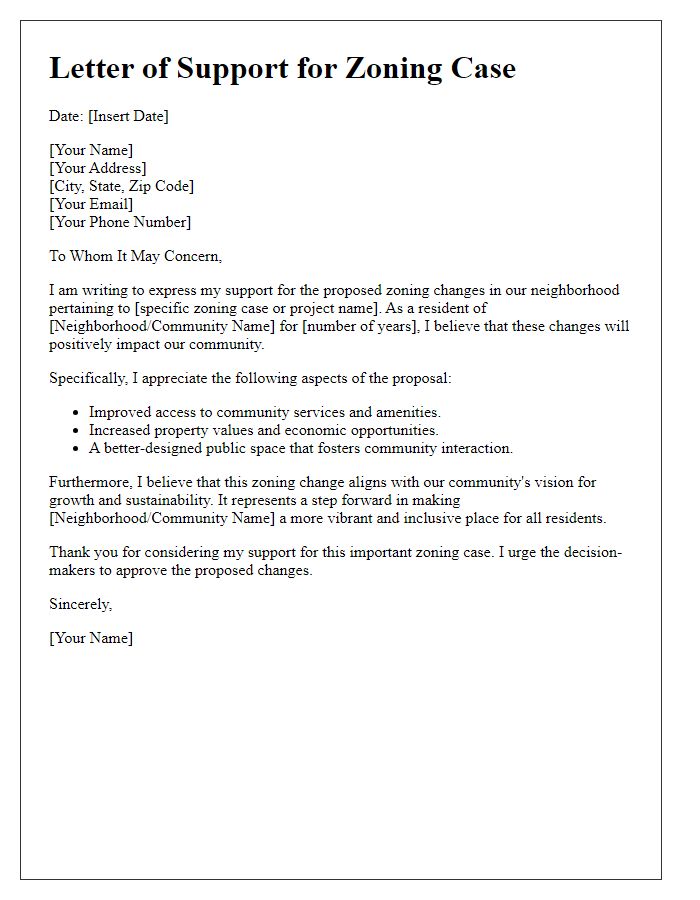
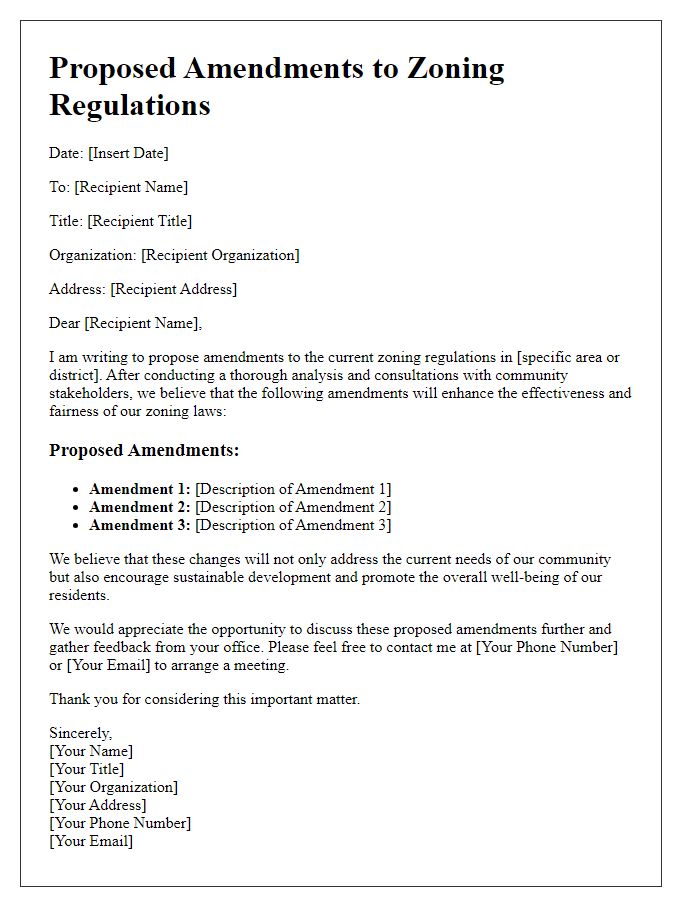
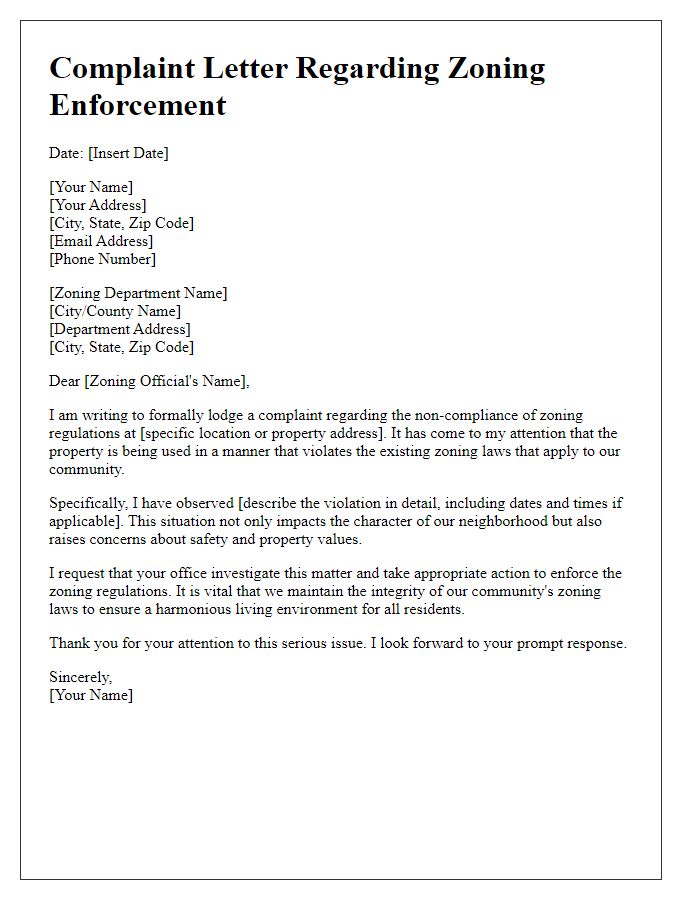
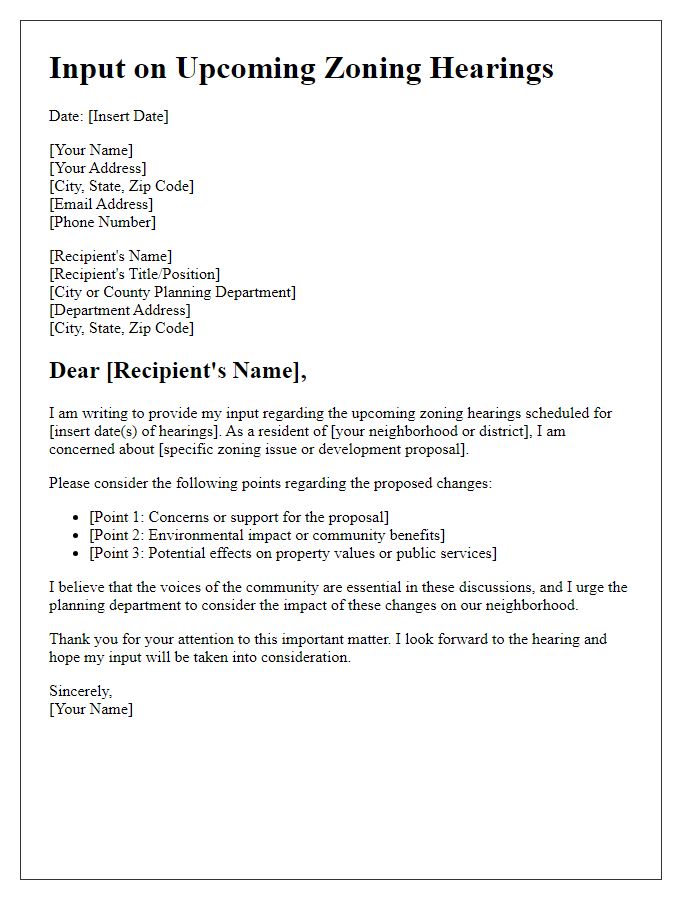
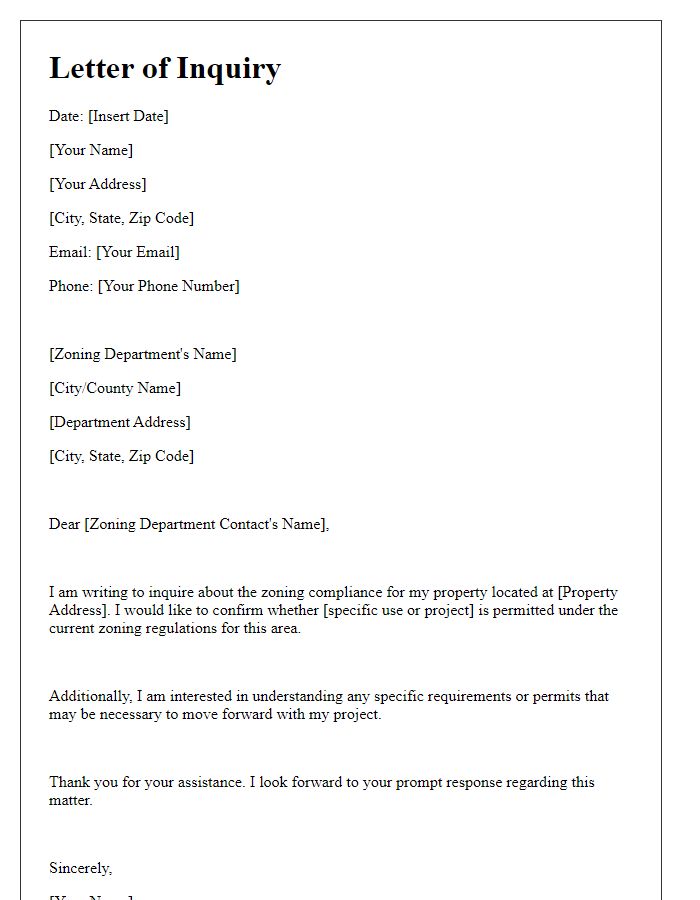
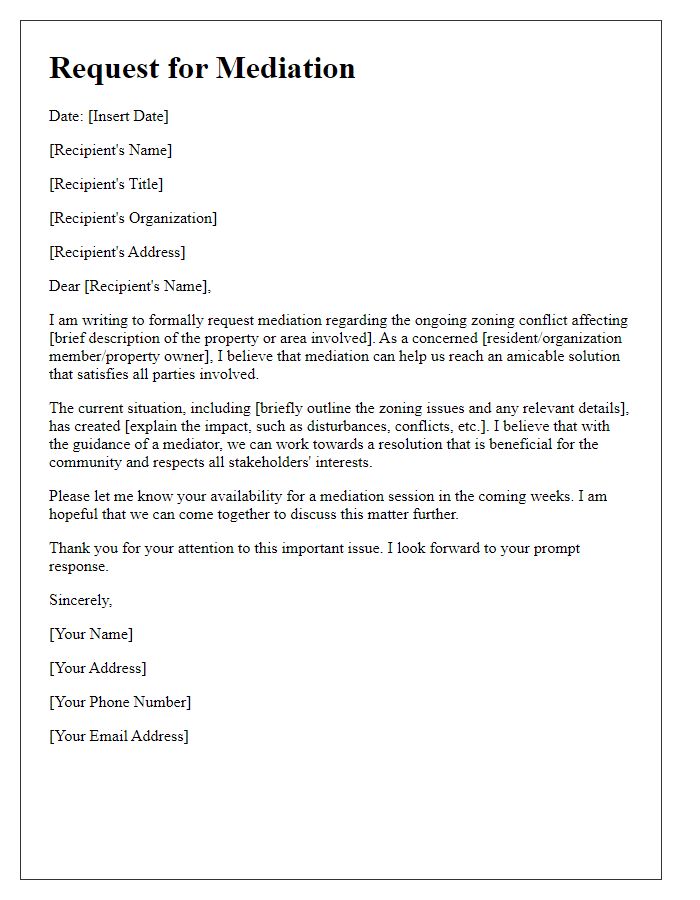

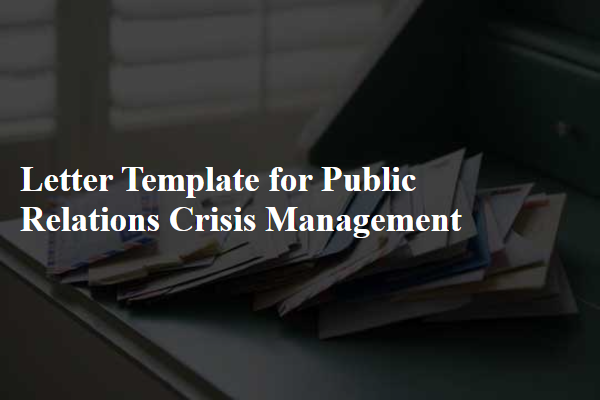
Comments